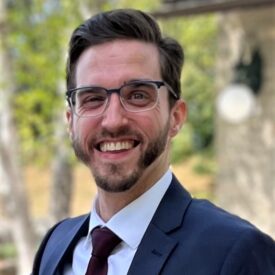Callum Sutherland
Associate, Ph.D, M.A.

Callum Sutherland
Associate, Ph.D, M.A.
Contact Callum:
Dr. Callum Sutherland is an Associate with DPRA Canada and a social scientist who specializes in qualitative research, controversies, as well as the social, cultural, and environmental impacts of science and technology. Callum holds a Ph.D. and M.A. in Science and Technology Studies from York University, and a B.Comm. in Business Management – Accounting from Toronto Metropolitan University.
Prior to joining DPRA Canada, Callum earned his Ph.D. by examining the persistence of controversies in British Columbia’s Indigenous, commercial, and recreational salmon fisheries. His doctoral thesis foregrounded Indigenous perspectives on these controversies, thereby shedding light on the inadequacy of existing approaches to reconciling Indigenous, place-based knowledges with the abstract forms of data typically favoured by fisheries managers in B.C. and elsewhere. After defending his Ph.D., Callum completed two postdoctoral fellowships with York University’s Lassonde School of Engineering (LSE), where he led multiple empirical studies designed to support the establishment of a more equitable and inclusive culture in postsecondary computer science- and engineering-education contexts.
As a conscientious, cross-cultural researcher and an expert in scientific and technological controversies, Callum specializes in identifying, understanding, and meeting the diverse needs of disparate stakeholder groups. Having recognized that projects often become mired in controversy for failing to adequately consider the needs of all such groups, Callum has developed a variety of innovative methodological approaches to conducting rigorous, participatory research in collaboration with Indigenous and non-Indigenous individuals and communities from a range of equity-deserving backgrounds.